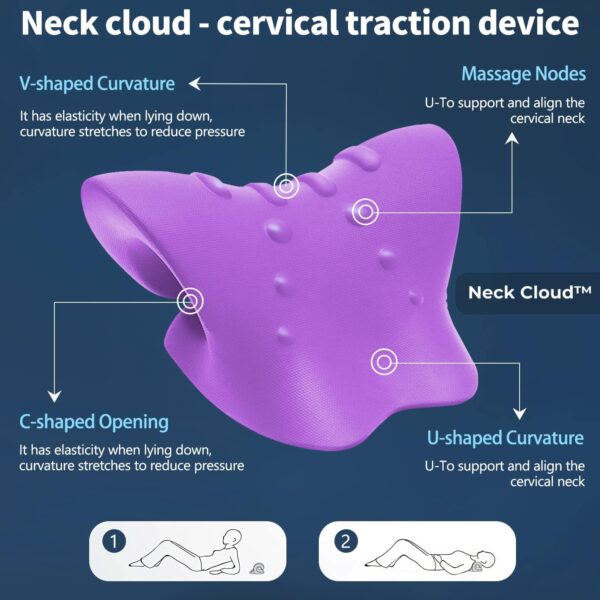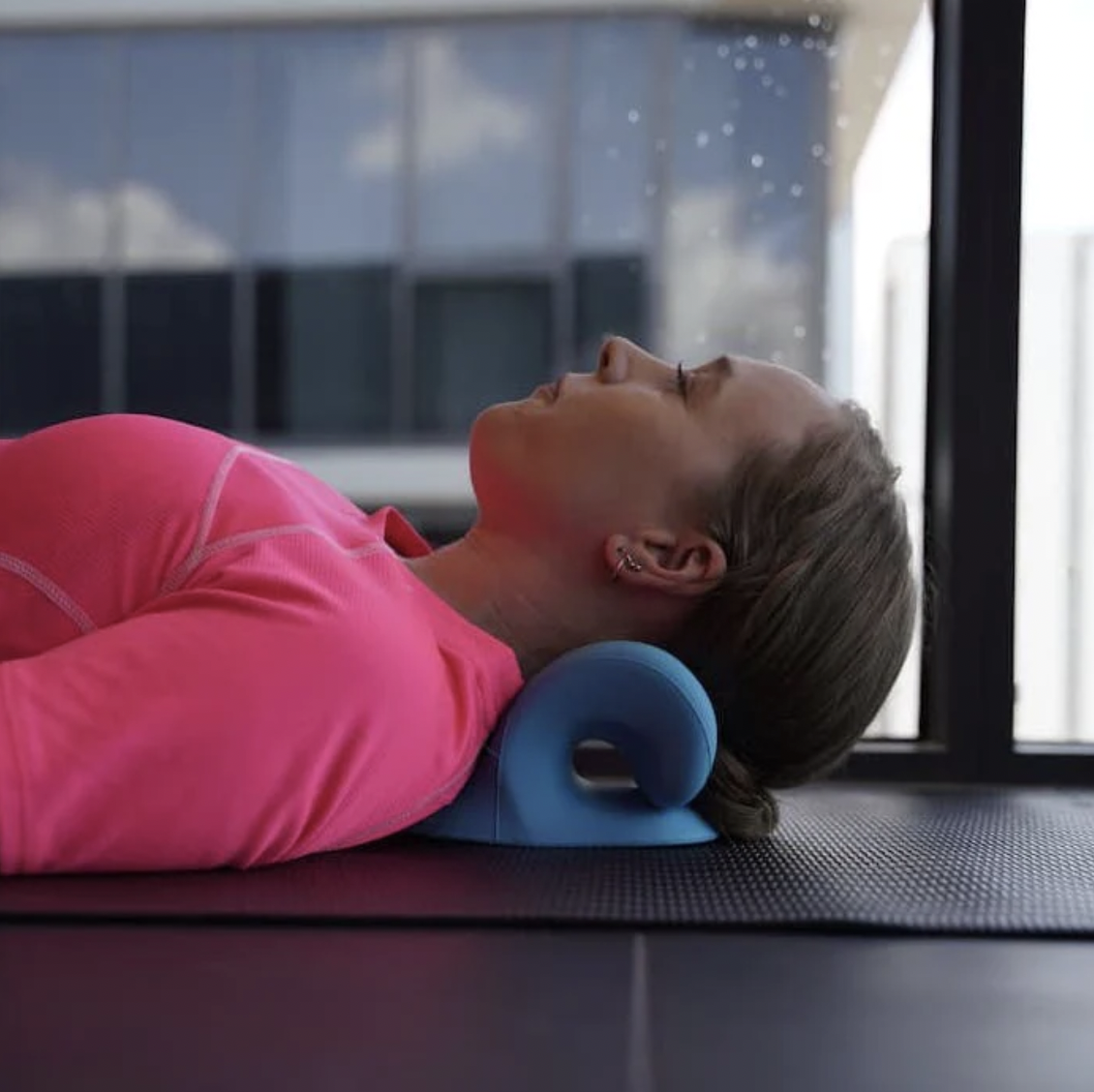Experience the Advantages of the Neck Cloud for Neck and Shoulder Relief
Experience the Advantages of the Neck Cloud for Neck and Shoulder Relief
Blog Article
The Influence of Anxiety on Neck Pain: Methods for Reducing Tension and Pain
In today's hectic world, it's no trick that stress and anxiety has actually come to be a prevalent factor in the onset and exacerbation of neck pain. Join us on a journey to untangle the impact of stress on neck pain and discover effective means to relieve discomfort and enhance overall quality of life.
Understanding Stress-Related Neck Pain
Neck pain is a common complaint that can typically be credited to tension. Stress-related neck discomfort can manifest as tension, rigidity, or pain in the neck and shoulder area. The link in between stress and anxiety and neck discomfort depends on the body's physical action to anxiety, which can lead to muscle stress and rigidity in the neck muscle mass. Persistent stress can bring about relentless neck pain and intensify existing problems like cervical spondylosis or muscle mass strains.

Identifying Common Stress Areas
Regularly experienced by individuals under anxiety, tension areas in the body can provide important understandings into the physical symptoms of emotional strain. One typical stress area is the neck, where tension frequently manifests literally. Stress headaches, rigid neck muscular tissues, and limited range of movement are usual signs and symptoms of stress-related neck tension. The shoulders are one more common area where tension accumulates. Stress can cause the muscular tissues in the shoulders to tighten up, bring about discomfort and pain. In addition, the upper back is vulnerable to stress accumulation, specifically in individuals who experience chronic stress and anxiety. Poor posture and prolonged sitting can worsen stress in this field. The jaw is additionally an usual location for stress-related tension, as many individuals clench their jaw or grind their teeth when stressed. Knowing these typical tension areas can help individuals acknowledge the physical indications of anxiety and take actions to resolve them before they rise into persistent discomfort or discomfort.
Implementing Relaxation Strategies
To properly take care of stress-related tension in the body, executing leisure strategies is vital. Relaxation techniques are beneficial devices for minimizing neck pain triggered by stress and anxiety. Deep breathing exercises can help relax the mind and kick back strained muscles in the their explanation neck and shoulders (neck cloud). Exercising mindfulness meditation can also be advantageous in alleviating stress and anxiety and promoting leisure. Dynamic muscle leisure, where you systematically tense and afterwards unwind various muscle mass teams, can release built-up stress in the neck area. In addition, tasks like yoga and tai chi integrate both physical movement and leisure, making them effective methods for reducing stress and anxiety and neck pain. Taking normal click breaks throughout the day to stretch and relax can prevent muscle mass stiffness and tension from gathering. By integrating these leisure techniques right into your day-to-day regimen, you can aid handle stress degrees, lower tension in the neck, and reduce pain connected with stress-induced neck discomfort.
Incorporating Self-Care Practices
Integrating self-care methods is crucial for maintaining overall well-being and managing stress-related neck pain efficiently. Engaging in regular physical activity, such as gentle extending exercises or yoga, can assist ease stress in the neck and shoulders. Practicing great position throughout the day and taking regular breaks from prolonged sitting or screen check my site time can additionally prevent pressure on the neck muscles.
Furthermore, prioritizing adequate rest and developing a constant sleep routine can add significantly to lowering stress and anxiety degrees and promoting relaxation. Developing a soothing going to bed regimen, such as checking out a book or taking a warm bathroom, can assist prepare the body and mind for relaxed sleep. Furthermore, keeping a well balanced diet regimen rich in nutrients and staying moistened can sustain total health and decrease swelling that might intensify neck discomfort.
Including mindfulness practices, such as deep breathing exercises or reflection, can help manage stress and advertise relaxation. Taking some time for oneself, participating in leisure activities, and setting borders to protect individual time are likewise important facets of self-care that can contribute to minimizing anxiety and relieving neck pain.
Seeking Professional Assistance
How can people efficiently resolve relentless neck pain that is influencing their daily life and well-being? Seeking expert help can be an important step in managing and easing neck pain.
Chiropractic doctors specialize in back control strategies to boost positioning and minimize stress in the neck area. Physical therapists offer targeted stretches and workouts to strengthen muscular tissues, boost versatility, and enhance total neck function. Orthopedic specialists can supply advanced medical treatments such as injections or surgical alternatives for severe cases of neck discomfort.
Final Thought

Stress-related neck discomfort can materialize as stress, rigidity, or pain in the neck and shoulder area. The link in between stress and neck discomfort lies in the body's physical feedback to tension, which can result in muscular tissue tension and tightness in the neck muscular tissues. Stress frustrations, stiff neck muscular tissues, and limited array of movement are common signs and symptoms of stress-related neck tension. By including these relaxation strategies into your everyday routine, you can aid take care of tension levels, lower tension in the neck, and reduce discomfort connected with stress-induced neck discomfort.

Report this page